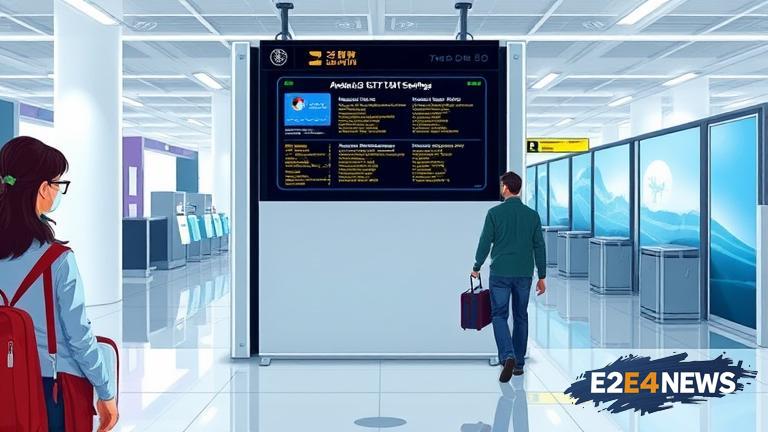Malaysia is making significant progress in the implementation of the Automated Passenger Screening System (APSS), according to the Home Minister. The APSS is a cutting-edge technology designed to enhance security and efficiency at the country’s borders. The system utilizes advanced biometric and data analytics to screen passengers, reducing the need for manual checks and minimizing the risk of human error. The implementation of APSS is a key component of Malaysia’s efforts to strengthen its border security and improve the overall travel experience for passengers. The Home Minister emphasized that the government is committed to ensuring the successful rollout of the APSS, which is expected to be completed in the near future. The APSS will be integrated with existing immigration systems, allowing for seamless data sharing and real-time monitoring. This will enable authorities to respond quickly and effectively to potential security threats. The system will also facilitate the processing of passengers, reducing wait times and improving the overall efficiency of border control operations. Furthermore, the APSS will help to prevent the entry of undesirable individuals, including those with criminal records or who pose a security risk. The Home Minister highlighted the importance of collaboration between government agencies, immigration authorities, and technology providers in ensuring the successful implementation of the APSS. The government has been working closely with international partners to share best practices and expertise in the development and implementation of the APSS. The APSS is expected to have a significant impact on Malaysia’s tourism industry, as it will provide a more efficient and secure travel experience for visitors. The system will also help to boost the country’s economy, as it will facilitate the growth of trade and commerce. In addition, the APSS will enhance Malaysia’s reputation as a secure and welcoming destination for travelers. The Home Minister emphasized that the government is committed to ensuring that the APSS is implemented in a way that balances security concerns with the need to facilitate legitimate travel and trade. The APSS will be subject to rigorous testing and evaluation to ensure that it meets the required standards of security and efficiency. The government has also established a comprehensive training program to ensure that immigration officers and other stakeholders are equipped to effectively use the APSS. The implementation of the APSS is a major milestone in Malaysia’s efforts to modernize its border security systems and improve the overall travel experience for passengers. The system will be continuously monitored and evaluated to ensure that it remains effective and efficient in meeting the country’s security needs. The Home Minister expressed confidence that the APSS will play a critical role in enhancing Malaysia’s border security and facilitating the growth of its economy. The government will continue to work closely with stakeholders to ensure that the APSS is implemented successfully and that it meets the required standards of security and efficiency. The APSS is a significant investment in Malaysia’s future, and it is expected to have a major impact on the country’s economic and social development. The system will help to create a more secure and welcoming environment for travelers, and it will facilitate the growth of trade and commerce. In conclusion, the implementation of the APSS is a major step forward for Malaysia, and it is expected to have a significant impact on the country’s border security, economy, and tourism industry.
